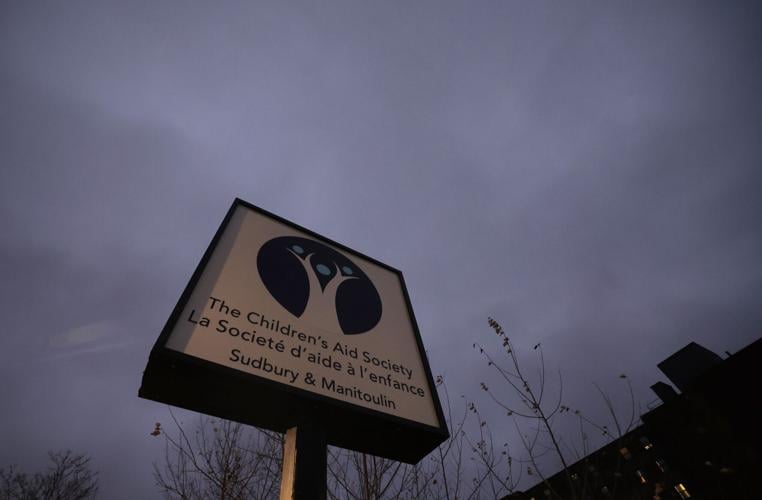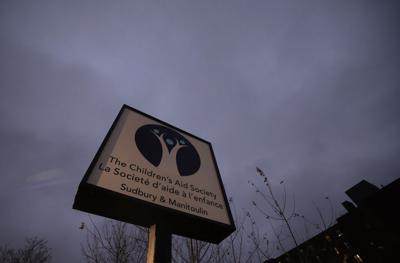They are often at risk of harming themselves or others. But instead of getting the urgent medical care they need, kids across the province are being abandoned to children’s aid societies by desperate families that have run out of options.
In the past year alone, the Ontario ombudsman’s office has investigated 15 cases in which parents were forced to surrender their children with complex health needs to CAS to get the treatment and support they require.
The unsettling disclosure, revealed Wednesday in the watchdog’s annual report, comes 20 years after the ombudsman’s office first flagged forced abandonment as a concern, and underscores urgent systemic issues that must be addressed, the report says.
“It’s a serious problem,” Paul Dub├ę, the ombudsman since 2016, said in a news conference. “It’s going to call for more investment and a commitment to make sure that community care is there.”
Dub├ę┬ásaid the stories his office has heard from parents are “heartbreaking and harrowing.”┬á

Ontario Ombudsman Paul Dub├ę said the stories his office has heard from parents forced to relinquish care of their kids are┬á“heartbreaking and harrowing.”┬á
Colin Perkel The Canadian PressThe figure released on Wednesday only includes cases in which the families approached the ombudsman for help, meaning the true number of parents forced to abandon their children over unmet health needs is likely higher.
ÔÇťThe 15 are the tip of the iceberg,ÔÇŁ said Irwin Elman, OntarioÔÇÖs child and youth advocate from 2008 to 2019. ÔÇťFar more parents have lost their children to CAS because no supports were available.ÔÇŁ
The province does not track how many families are forced to relinquish care to CAS because they cannot get the support and medical treatment they need. In a year-long period ending last fall, Ontario child welfare agencies provided services to 589 children or youth for whom protection concerns such as abuse or neglect were either not present or were a secondary concern to unmet health needs, according to figures provided by the Ontario Association of ChildrenÔÇÖs Aid Societies, which represents most of the provinceÔÇÖs child welfare agencies.
At the heart of the problem is a provincewide lack of intensive treatment and supports that is also forcing child welfare agencies to take desperate measures, such as housing kids in hotels, Airbnbs, offices and other unlicensed settings.
Dub├ę said an investigation his office announced last fall into the practice of housing children in these ÔÇťinappropriate settingsÔÇŁ will be released in the coming months.
In October, 15-year-old Jade of London, Ont., died of a drug overdose after she spent a year living in hotels and unlicensed group homes while in the care of the childrenÔÇÖs aid society. Her death came after a years-long mental health crisis that pushed her adoptive parents, and then her birth mother, to surrender care to CAS.
ChildrenÔÇÖs aid societies have housed hundreds of kids, including many with mental health conditions and high-risk behaviours, in unlicensed settings.
ChildrenÔÇÖs aid societies have housed hundreds of kids, including many with mental health conditions and high-risk behaviours, in unlicensed settings.
A Star investigation into JadeÔÇÖs death revealed that over the past five years, the province has been warned repeatedly that children like her are in danger, but has failed to take action.
During her year in hotels, Jade, who was diagnosed with multiple mental health conditions, spiralled further into crisis. She developed a serious drug addiction, overdosed multiple times and was the victim of a violent assault. To comply with court-ordered publication bans, in all articles the Star writes about Jade, we are identifying her and her family using middle names and nicknames.
The number of families that approached the ombudsmanÔÇÖs office to say they were forced to surrender custody of their children to get the urgent care they need has risen after a period of relative stability, according to figures provided by the office. After hitting a peak of 44 families in 2010-2011, cases stabilized at fewer than five each year for more than a decade. But the problem reared its head again in the aftermath of the pandemic, with 21 families approaching the ombudsmanÔÇÖs office in 2023-2024 to say they were forced to surrender care, and another 15 in the past 12 months.
Nearly 20 years ago, a report by the provincial ombudsman, ÔÇťBetween a Rock and a Hard Place,ÔÇŁ found there were more than 100 families in Ontario who ÔÇťout of desperation, have been forced to give up parental rights in order to get their children the residential care they require.ÔÇŁ
For that probe, sparked by complaints from desperate parents, the ombudsmanÔÇÖs office made a public appeal for families to come forward and sought examples from child protection agencies.
ÔÇťSuccessive governments have said repeatedly that no parent should be forced to give up custody of a child in order to access specialized support,ÔÇŁ then-ombudsman Andre Marin wrote in 2005. ÔÇťYet it is still happening, year after year.ÔÇŁ
ÔÇťUnless something is done urgently,ÔÇŁ Marin added, ÔÇťit will be happening not only ÔÇśin this day and age,ÔÇÖ but again tomorrow and a year after tomorrow.ÔÇŁ
































To join the conversation set a first and last name in your user profile.
Sign in or register for free to join the Conversation